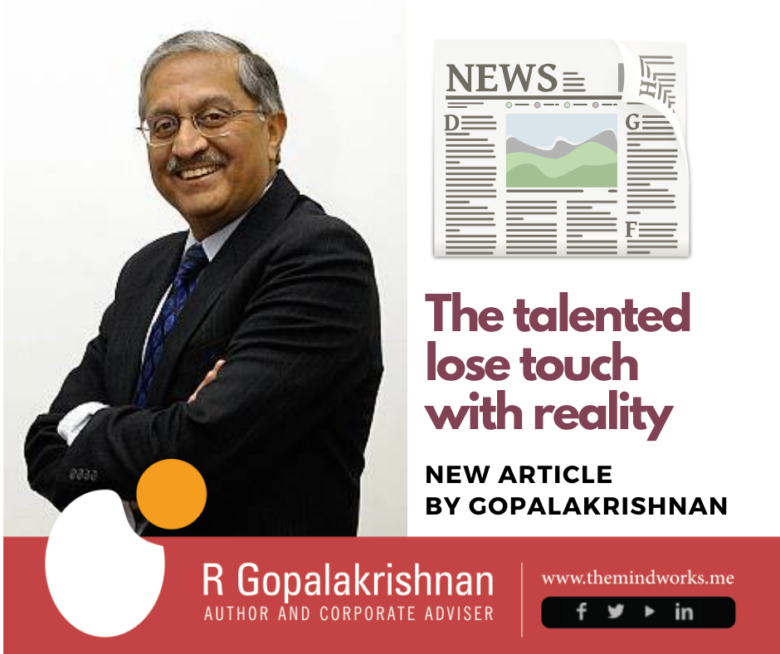8th July 2005, BUSINESS STANDARD
Successful innovators often take a measured approach. They postpone gratification and focus on execution
I was a bit surprised but pleased by the spate of responses to my InnoColumn last month (“Innovators who strangle innovation”, May 14). Readers agreed that some narcissism is appropriate among the innovators, but how to judge how much? To borrow from Bob Dylan, the answer is blowin’ in the wind. Are we not intuitively careful with an innovator who becomes, what Hank Paulson said of ex-Lehman CEO, Dick Fuld, “a person who hears only what he wants to hear.”
Readers asked the flip side – what does it take to succeed? Bill Gross, the founder of Idealab and an incubator of over a hundred start-ups, delivered a TED talk last week on “the single biggest reason why start-ups succeed”. One must listen to Gross carefully, considering his wide experience in the subject.
He says that the most important success factor is timing (42 per cent); second is team/execution (32 per cent); third is the distinctiveness of the idea itself (28 per cent), while the last two reasons were business model (24 per cent) and funding (14 per cent). The percentage numbers are not worth analysing too much, the sequence is worth deep thought.
Innovators who are besotted with ‘the big idea’ would feel sobered to read the relative position of their favourite item. The narcissist, I-orientated innovators would do well to note the second position of ‘team/execution.’ But the first position of ‘timing’ is the one that is surprising. Once stated, it is not too difficult to accept. Could it be that some well-regarded innovations such as Chotukool, Nano and Swach are all great innovations, which got the timing wrong?
Everyone dreams of being a Steve Jobs or Elon Musk (with their attendant foibles), but most innovators end up with their foibles and without their results. I have observed at close range two start-ups: call them S (successful) and LS (less successful). Neither is in the ‘change the world’ variety, but their behaviour and performances are different.
S and LS have similarities: 10 years old, attracted the same amount of equity capital, both are research-based start-ups and hence faced the challenge of timing. S achieved positive profits within five years, whereas even after 10 years, LS is struggling to achieve positive profits. S has an estimated equity value of 5x, while LS struggles for even a par-equity value. What differences did I observe?
The successful venture, S, took a measured approach and spent money cautiously. It crossed the river by feeling the stones, to borrow a Deng Xiaoping expression. The founders were by nature collaborative, they paid themselves modestly, travelled with tight budgets and set their sights on multiplying their long-term share value. They postponed gratification, focused on execution, abhorred debt and were respectful enough of business principles to target positive profit and cash flow.
The LS leadership came through as ace salesmen, full of bombast. Even after some years of missing budgets, the founder could not admit to inadequacy in execution. Company officers were paid competitively and travelled comfortably. The founder periodically looked to the funder for more equity. There was an element of narcissism (success mine, shortcomings others), high betting on the future fruits of research without planning for a downside. Positive profit and cash flow seemed to lurk around the corner every year, but somehow they did not arrive.
My experience with S and LS validates Gross, who is worth listening to.
The public adulation of start-up founders is universal. Yet author Giles Wilkes knocked this adulation on the head through his recent piece (“The misplaced hero worship of founders”,Financial Times, June 5, 2015). He paints the popular imagery of the buccaneering entrepreneur with cold facts by writing, “following economist Joseph Schumpeter, start-up heroes revolutionise the economy, reorganise industries and find new ways of doing old things… but entrepreneurs who can transform the economy are found in companies of any size… existing UK companies, not start-ups, accounted for ninety per cent of UK productivity growth… it is a persistent myth that start-ups exploit a better way of operating than currently.”
Is this true only for the UK, what about the the US or India? Food for thought.

